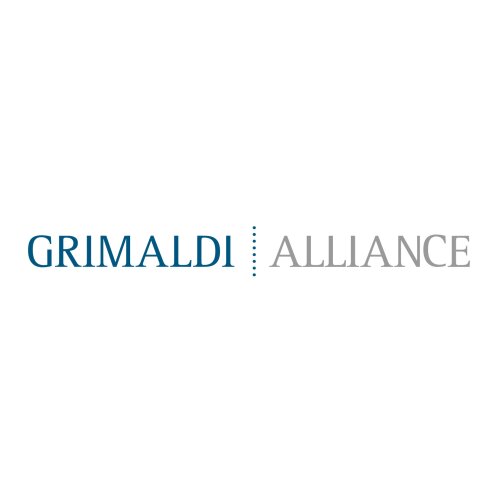Best Credit Repair Lawyers in Milan
Share your needs with us, get contacted by law firms.
Free. Takes 2 min.
List of the best lawyers in Milan, Italy
About Credit Repair Law in Milan, Italy
Credit repair in Milan, Italy, involves improving one's credit report and score by removing erroneous or outdated information. In Italy, credit repair practices are governed by European Union regulations and Italian privacy laws which ensure that individuals have the right to access their personal credit information and dispute any inaccuracies. The process is facilitated by credit bureaus, creditors, and, if necessary, legal practitioners. The ultimate goal is to improve an individual's credit score, enhancing their financial profile and access to credit facilities. In Milan, like in the rest of Italy, ensuring accuracy in credit reports is crucial given the economic implications of credit scoring on personal finance.
Why You May Need a Lawyer
Seeking legal advice in credit repair may be necessary in various situations. For instance, if attempts to correct inaccuracies on your credit report through regular channels have been unsuccessful, legal counsel can provide expertise in navigating the complexities of consumer credit laws. Additionally, if you are dealing with refusal of credit or unfavorable credit terms due to incorrect credit reporting, a lawyer can help in negotiating with creditors or pursuing legal action against credit bureaus. Other scenarios might include challenging identity theft issues, addressing unauthorized transactions, or disputing unfair debt collection practices.
Local Laws Overview
Credit repair in Milan is influenced by a combination of local, national, and European legislation. The key aspects include the Italian Consumer Code, which provides general consumer protection, and the Privacy Code that governs the handling of personal data, including credit information. The European Union's General Data Protection Regulation (GDPR) also plays a significant role, granting rights such as access, rectification, and erasure of personal data. Additionally, local consumer protection agencies enforce rules against unfair commercial practices in the credit sector, ensuring transparency and fairness.
Frequently Asked Questions
What is a credit report and how is it used?
A credit report is a detailed record of an individual’s credit history, used by lenders to assess creditworthiness for loans or other credit facilities. It includes information such as borrowing history, repayment records, and any defaults.
How can I access my credit report in Italy?
You can access your credit report in Italy by contacting a credit bureau like CRIF or Cerved. Under GDPR, you have the right to request a free copy of your credit report at least once a year.
What should I do if I find an error on my credit report?
If you notice an error, you should immediately contact the credit bureau with documented evidence to dispute the inaccurate information. If unresolved, seeking legal guidance might be prudent.
How long does negative information remain on my credit report?
Negative information typically stays on your credit report for up to five years, though serious delinquencies can remain longer. Positive behaviors such as consistent repayments help offset older negative information.
Can a lawyer help me improve my credit score?
Yes, a lawyer can assist by ensuring that your credit report is accurate, negotiating settlements with creditors, and removing invalid negative information that unduly affects your score.
Is it possible to remove accurate negative information from my credit report?
Accurate negative information cannot be legally removed from a credit report and should naturally move off over time. Lawyers can help ensure that all information reported is legally and factually accurate.
What are some common credit repair scams to be aware of?
Watch for scams promising to remove legitimate negative information, requesting huge upfront payments, or operating without a transparent process or legal framework. Always ensure that any credit repair organization is legally compliant.
Can disputing an error worsen my credit situation?
Disputes don’t inherently worsen your credit situation. However, frivolous disputes might delay corrections or other resolution strategies. It's often beneficial to consult with a professional before filing a dispute.
What role do creditors play in credit repair?
Creditors must provide accurate data to credit bureaus. If errors originate from creditors, they must be contacted directly to rectify the mistake. They play a central role in updating information that can improve one’s credit score.
How do Italy's privacy laws affect credit repair?
Under Italian and EU privacy laws, individuals have significant rights to access, dispute, and amend their credit data, protecting them from misinformation and ensuring credit reports reflect accurate and fair information.
Additional Resources
Consider contacting organizations such as the Bank of Italy, Italian Consumer Association, or using online portals like EUR-Lex for comprehensive legal texts regarding consumer rights. They provide guidance and support for those facing credit issues. It's also helpful to consult with organizations specializing in financial advisory services.
Next Steps
If you require legal assistance in credit repair, begin by gathering all relevant credit documents and evidence of any errors. Contact a local lawyer experienced in credit repair and consumer rights to discuss your case. It's also advisable to visit a consumer rights agency for initial guidance. Proactively maintaining records of all communications and documents will support your case during any legal proceedings. Always ensure that legal professionals consulted are reputable and knowledgeable in Italian financial law as it applies to credit repair.
Lawzana helps you find the best lawyers and law firms in Milan through a curated and pre-screened list of qualified legal professionals. Our platform offers rankings and detailed profiles of attorneys and law firms, allowing you to compare based on practice areas, including Credit Repair, experience, and client feedback.
Each profile includes a description of the firm's areas of practice, client reviews, team members and partners, year of establishment, spoken languages, office locations, contact information, social media presence, and any published articles or resources. Most firms on our platform speak English and are experienced in both local and international legal matters.
Get a quote from top-rated law firms in Milan, Italy — quickly, securely, and without unnecessary hassle.
Disclaimer:
The information provided on this page is for general informational purposes only and does not constitute legal advice. While we strive to ensure the accuracy and relevance of the content, legal information may change over time, and interpretations of the law can vary. You should always consult with a qualified legal professional for advice specific to your situation.
We disclaim all liability for actions taken or not taken based on the content of this page. If you believe any information is incorrect or outdated, please contact us, and we will review and update it where appropriate.















